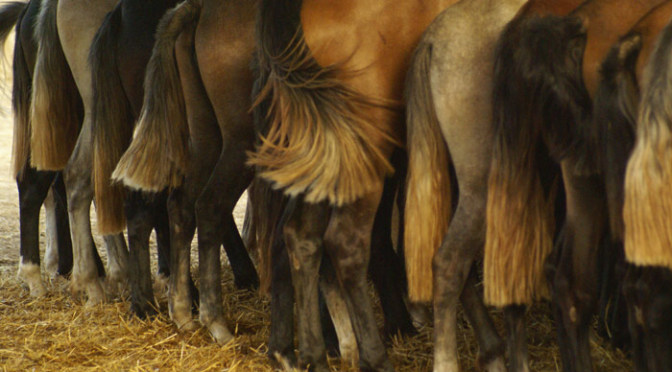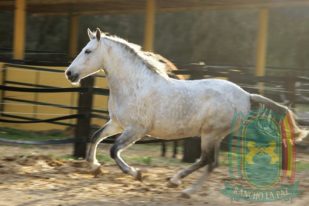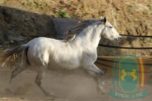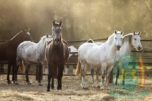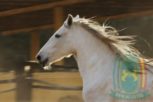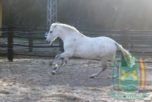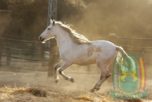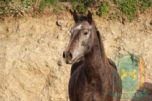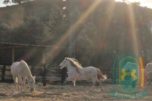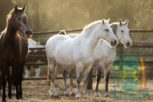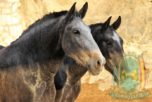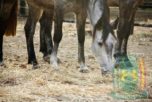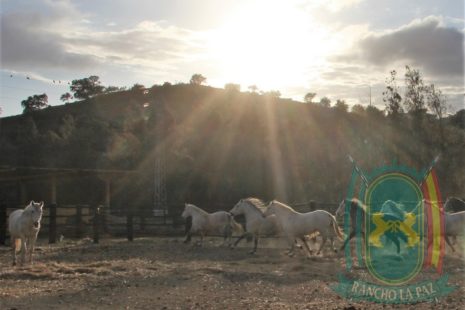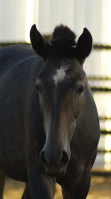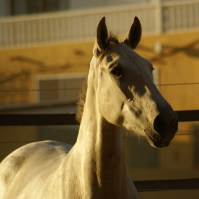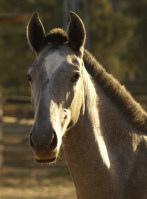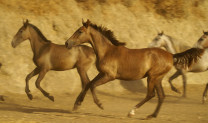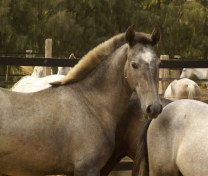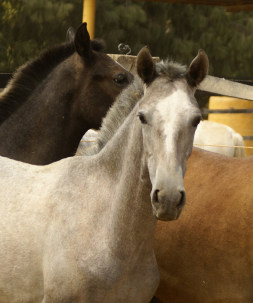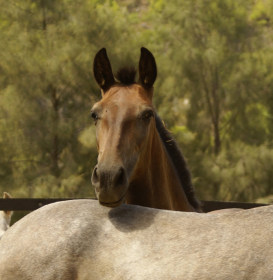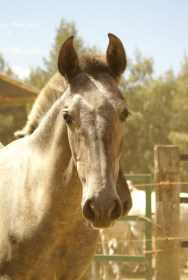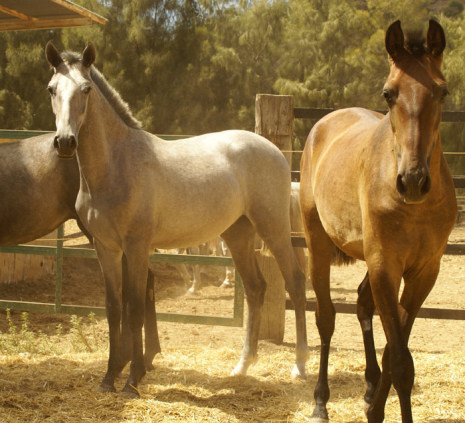Our young horses grow up, as far as it is possible as “wild horses”. They are born outside in the herd, knowing the approximate birth date by ultrasonic investigations of the mares. All of the first mares are controlled more exactly, but we always try to be in the background. It is fascinating for all, who never had seen this, to watch the other mares worry about other mothers and foals, see expecting mares react jealous on newborn foals and how quickly the foals are integrated in the herd.
The original instincts are still fully trained: depending on weather and moon conditions, several mares get at the same time their foals or transfers. The foals remain up to 6 to 8 months with their mothers in the herd. Then we separate them and they come for approx. 3 to 4 weeks into large stables, until the mares have no more milk, don’t call for the foals and the foals calm down. The first year we leave them, stallions and mares, together in one coral, because they are still too small to intersperse with the older ones. But in the spring of their second year they getinto the herd of the young stallions and mares, where they remain nearly up to four years, in order to get slowly to the serious side of life.
Living in the herd, they learn to stand up to and submit to the others, becoming character-firm and durable horses. By our climate the horses can stay outside the whole year – they have roofs around them, when they need them for food and rainy or stormy days. Our horses get a thick teddy skin, which many do not believe, if they are seeing them in summer. They also don’t have any problems at all in the case of a climatic change. (For example a winter in northern Europe)
Though it may sound that we let our young horses rise in complete liberty, we still observe every one of them. They receive all vaccinations and anthelmintic therapies and get their wolves teeth pulled. Vaccinating the foals is always an amusing event but catching the 2- to 4-year old ones is hard work for our professionals.
By our climatic conditions we do not have the possibility, letting our young horses grow up on green pastures. Though the original nature of the Andalusians is familiar with the meagre conditions of Andalusia and therefore gains its hardness and robustness. As we want to let them grow up to strong trail horses, we draw up much value on an optimal feeding. Beside force fodder, minerals and vitamins we feed them with “Alfalfa” and “Heno” (a mixture of grass, herbs and grain containing still whole grains), which come from northern Spain.
We see the success daily in our Corals…

